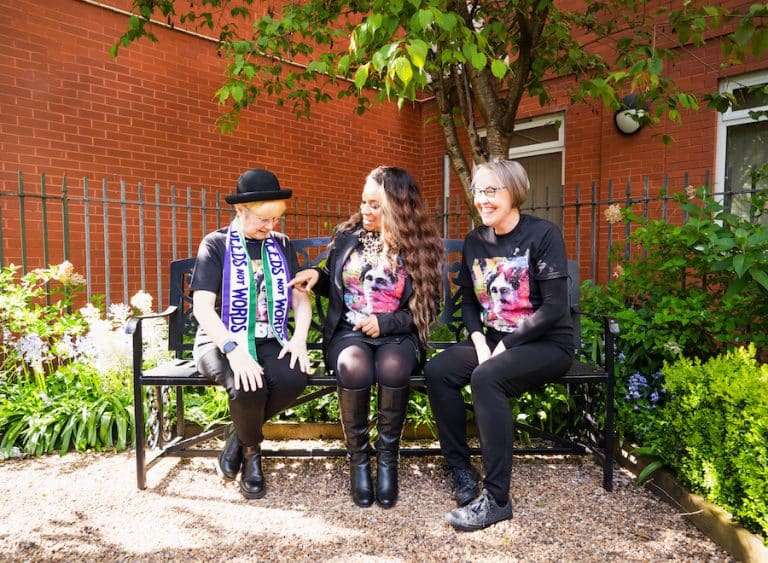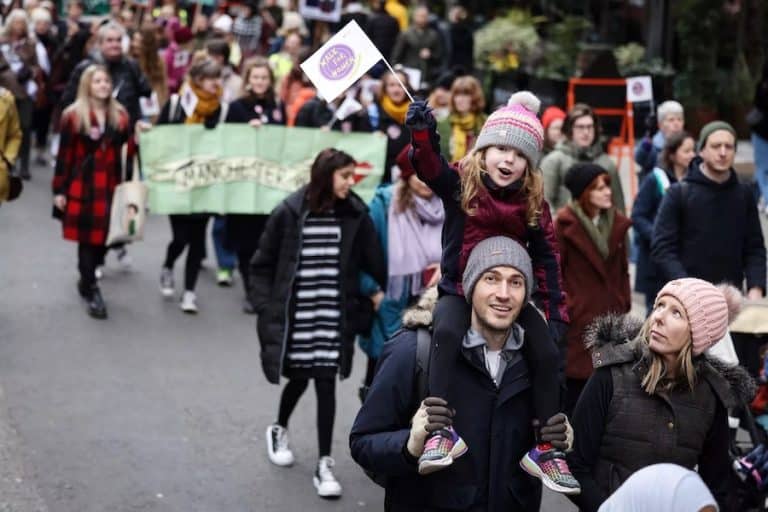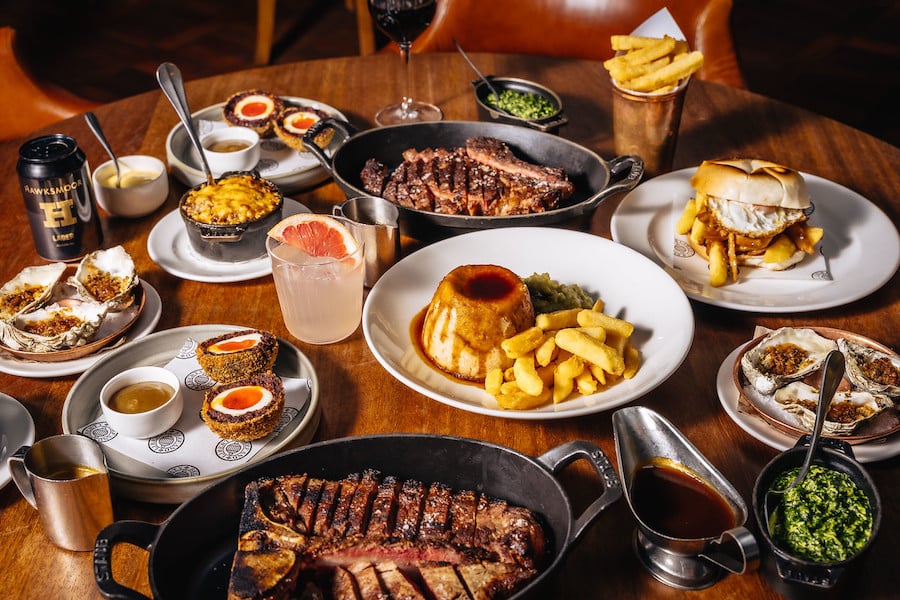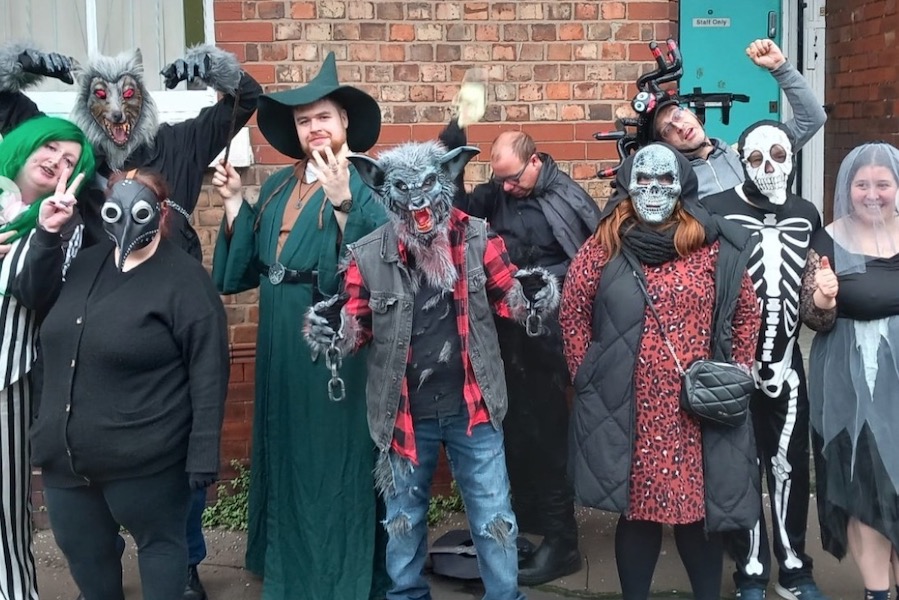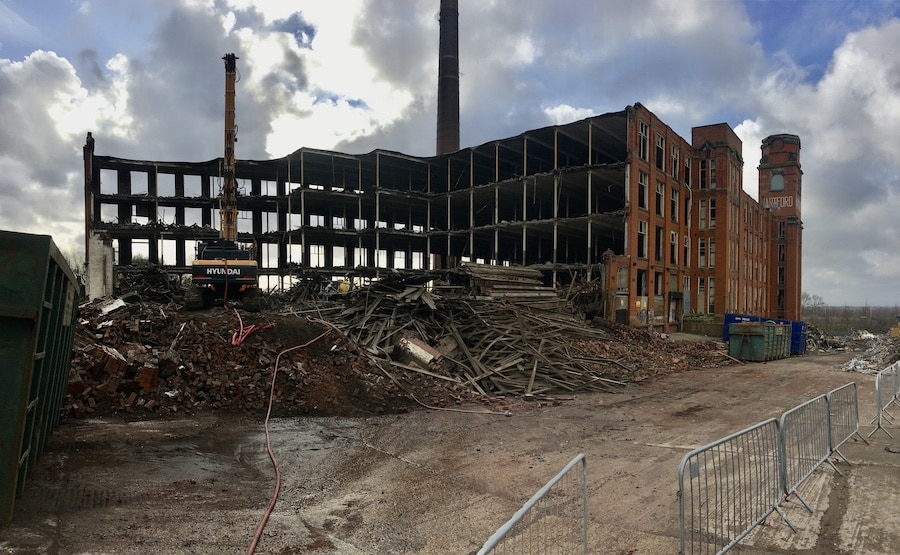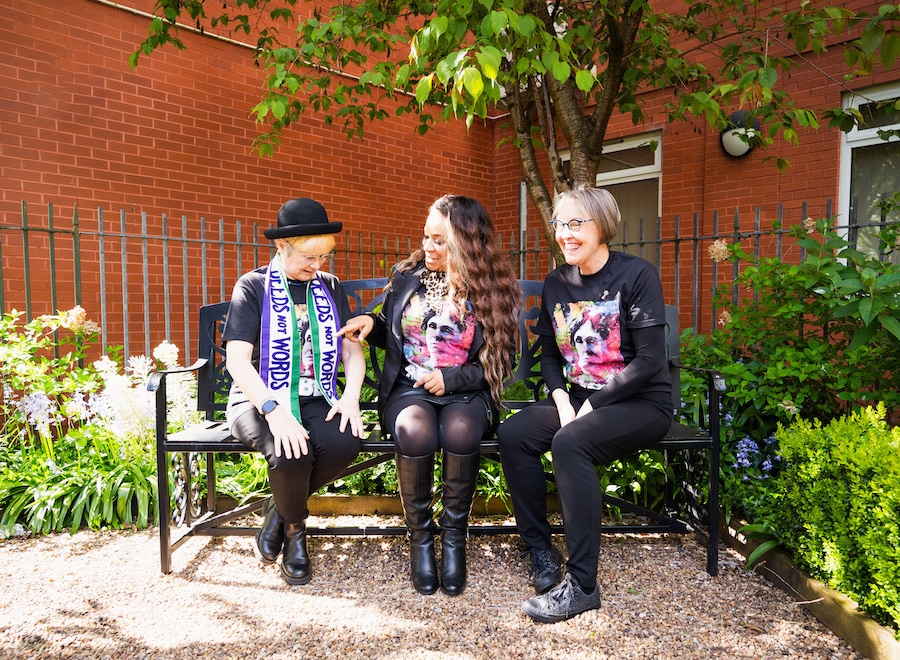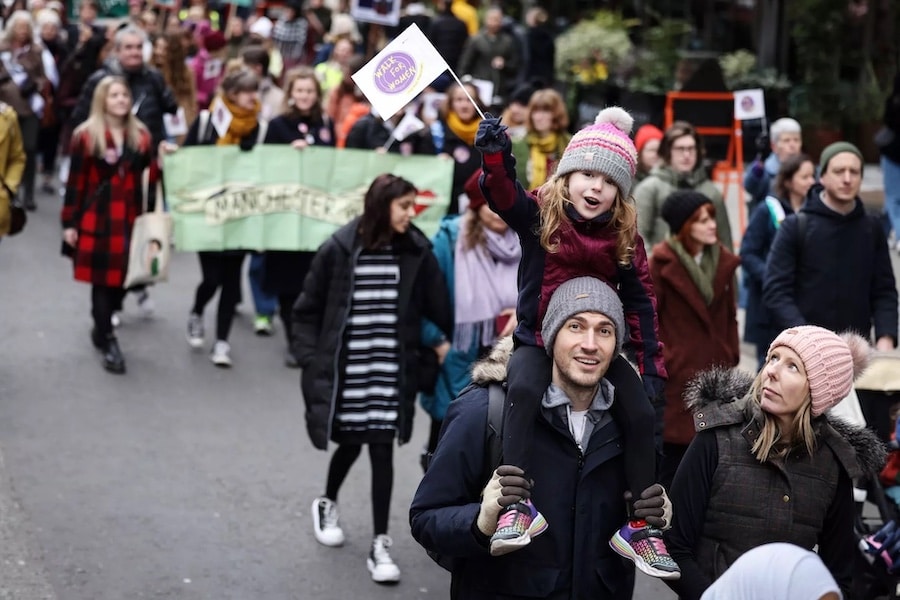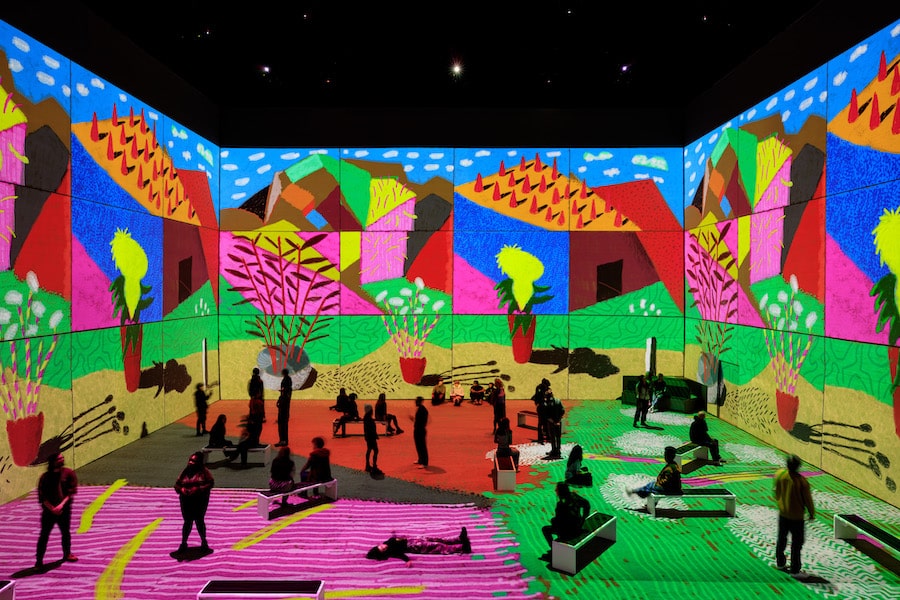Sam Danson’s Bi-Topia: A powerful and thought-provoking production on toxic masculinity, mental health, and sexuality
- Written by Thom Bamford
- Last updated 2 years ago
- LGBT+, Theatre
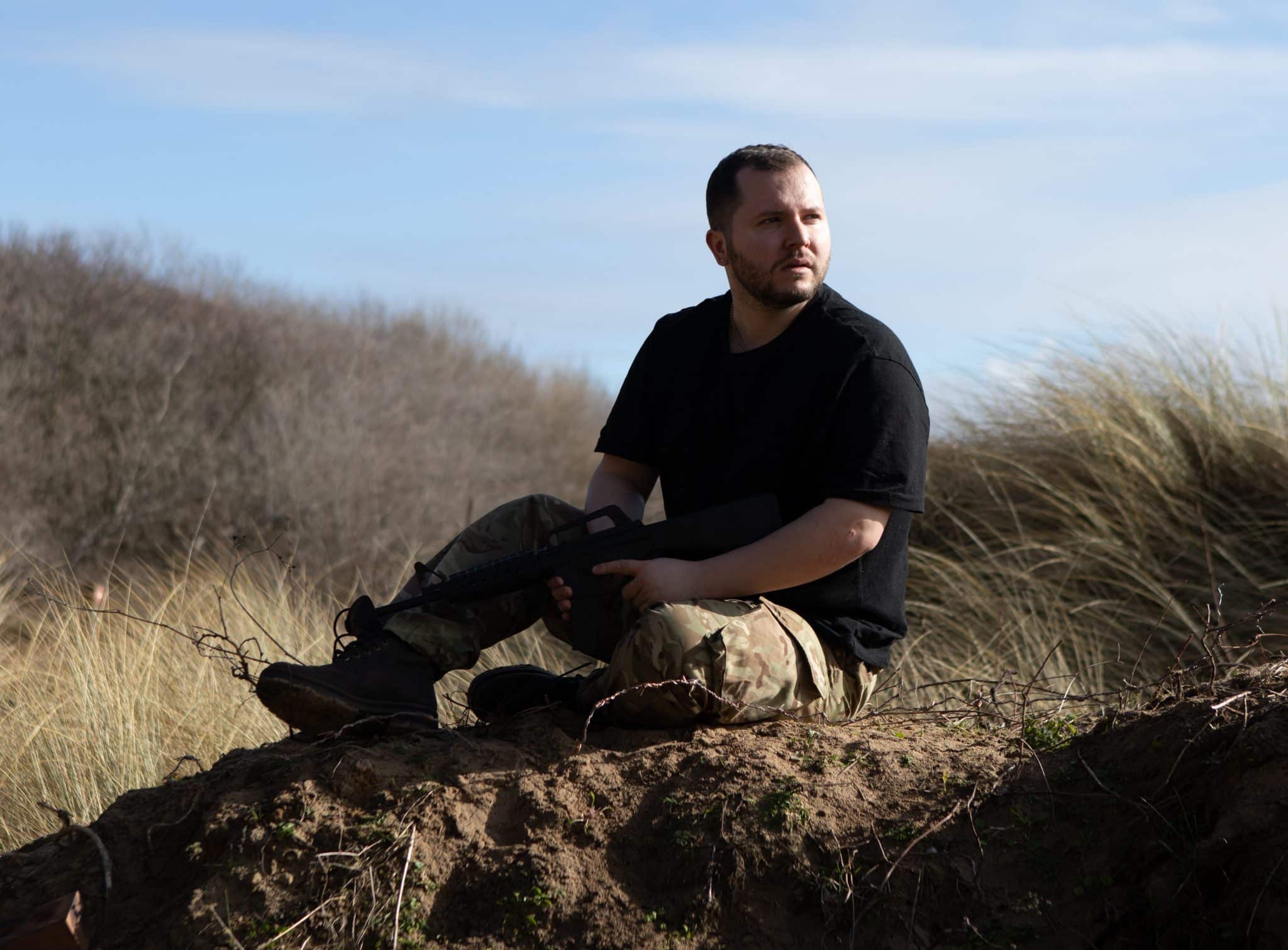
Sam Danson is a multi-talented artist from Manchester with extensive experience in theatre, radio, and stand-up comedy.
His upcoming play, Bi-Topia, reflects his commitment to shedding light on under-represented issues and exploring themes of identity, mental health, and sexuality.
In addition to his work in the arts, Danson is also an accomplished freelance radio journalist, bringing a fresh perspective to every topic he covers.
The play’s themes revolve around toxic masculinity and the effects it has on individuals, as well as the links between sexuality and poor mental health.
The play is set to debut at Trafford Pride, and you can get tickets by clicking here.
It runs from May 17th to 20th at Sale Waterside Arts.
We sat down with Sam to discuss the inspiration behind the play and the collaboration with director Rikki Beadle Blair.
When asked about the inspiration behind Bi-Topia, Sam stated that it was an amalgamation of their own experiences and stories heard through outreach and activism work.
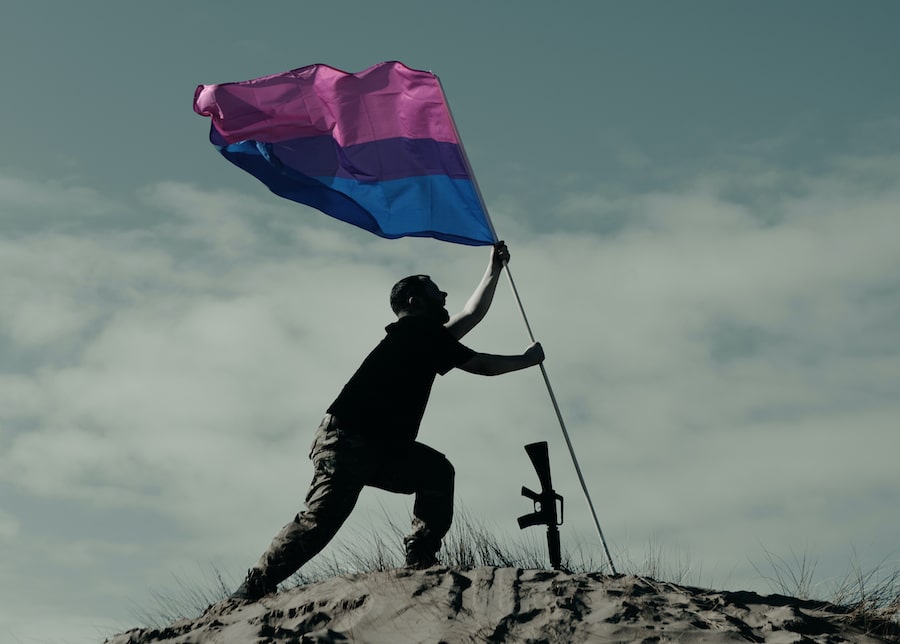
He said: “The inspiration has been an amalgamation of a lifetime of my own experiences, as well as hearing other people’s stories through outreach and activism work that I’ve done.
“There’s a lot of expectations that is put on people in this world, especially young people, and it can cause a lot of anxiety, and even shame if you don’t feel you meet those expectations, for example, living in a heteronormative world means LGBT people grow up feeling different to those who raised them, we still live in a world where it feels ‘liberal’ or ‘woke’ to accept and embrace LGBT lives, and that is a huge problem that I knew I wanted to talk about.
Sam emphasised that there are significant expectations placed on people, particularly young people, in a heteronormative world.
These expectations can lead to anxiety and shame when individuals feel they do not meet them.
“In terms of play’s themes, I have a lot to say about masculinity and how the perceptions of that affect everybody, not just LGBT people, or men.
“It can be really toxic, and that is only perpetuated and exaggerated in the war movies I grew up
watching.
“I grew up wanting to be Ben Affleck in Pearl Harbour, he seemed to sum up to me everything a man should be; brave, strong, clumsily romantic, aggressive and prepared to give everything for those you love, even your life.
“This idea of war also served as a great narrative tool to use to talk about other ‘battles’ we face in our life, with mental health, identity and shame.
“It may not be like the war films, but they’re significant battles, I think exaggerating the battle aspect fed really well into the character I’ve created, and only further highlights their clinging grip to masculinity even when talking about vulnerable topics.”
Sam also spoke about the importance of challenging societal perceptions of masculinity, which can be toxic and harmful to everyone.
He praised director Rikki Beadle Blair, who has been a valuable collaborator throughout the production of Bi-Topia.
According to Sam, Rikki challenged their thoughts while simultaneously lifting them up and making them feel valued as a theatre-maker.
When asked about the message they hope audiences will take away from Bi-Topia, Sam emphasised the importance of representing wider issues of sexuality, identity, mental health, and masculinity.
He said: “Before I even started writing, I knew I wanted this play to be semi-autobiographical and not just a personal tale, I really want to emphasise representing the wider issues of sexuality, identity, mental health and masculinity, and for that to be what people leave the show talking about, I never wanted people to leave talking about my hardships, I want them to get discussing the very real issues we all face in this society, and most of all, to think about how ridiculous life is.
“I think it’s so important for people to talk right now, there is so much going on.
“The key aim for all the work I do is to normalise the act of talking about your mental health and sexuality, those things shouldn’t bring anybody shame, and it’s incredibly sad that it does so on such a large scale.
“Although the show is semi-autobiographical, I do include the story of a homophobic attack that I faced as a teenager, that’s a true story, and it felt important to talk about.
“Transphobia and hate crime is so common at the moment, we need to know we can talk, life’s tough and nobody should feel like they’re alone.”
Sam hopes that the play will encourage people to discuss these important issues and to normalise conversations surrounding mental health and sexuality.
One of the notable features of Bi-Topia is its semi-autobiographical nature.
Sam included a story of a homophobic attack they faced as a teenager, which felt important to talk about given the prevalence of transphobia and hate crimes today.
By highlighting the importance of talking about these issues, Sam hopes to make audiences feel less alone.
Bi-Topia also sheds light on the underrepresented links between battling poor mental health and dealing with one’s sexuality.
Sam drew from both personal experiences and research into the wider narrative of the LGBT community to create a relatable character that struggles with understanding their thoughts and feelings.
He continued: “I have, like many people, got a lot of personal experiences with this, but not only that, I have spent a long time researching and reaching out to various parts of the LGBT community to form a better understanding of the wider narrative and the common experiences.
“BI-TOPIA depicts a character dealing with these very issues, we see him in a number of situations where he doesn’t quite understand his thoughts and feelings, sometimes it’s funny, awkward and clumsy, other times it’s painfully tragic.
“But the hope is that there will be parts of the show that are relatable for anyone.
Throughout the interview, Sam highlighted the importance of challenging societal norms and perceptions.
By discussing these important issues, they hope to encourage people to think more critically about their own beliefs and biases.
“I think societal norms are so strange, I cannot understand them.
“We all just plod about our days carrying so many pre-conceptions and most of them are just completely ridiculous, why is it ‘woke’ to be completely accepting of LGBT people?
“Why did I, and so many men, grow up feeling like we needed to prove our strength in order to have value? I have enjoyed writing the character living within this society, and I hope by audiences seeing life through this character’s eyes, it will help them challenge their own inner narrative, and check whether it’s all serving them for the better, or holding them back from truly being themselves, that’s the hope anyway!”
Bi-Topia promises to be an important play that addresses significant societal issues that affect the LGBT community.
- This article was last updated 2 years ago.
- It was first published on 13 April 2023 and is subject to be updated from time to time. Please refresh or return to see the latest version.
Did we miss something? Let us know: [email protected]
Want to be the first to receive all the latest news stories, what’s on and events from the heart of Manchester? Sign up here.
Manchester is a successful city, but many people suffer. I Love Manchester helps raise awareness and funds to help improve the lives and prospects of people across Greater Manchester – and we can’t do it without your help. So please support us with what you can so we can continue to spread the love. Thank you in advance!
An email you’ll love. Subscribe to our newsletter to get the latest news stories delivered direct to your inbox.
Got a story worth sharing?
What’s the story? We are all ears when it comes to positive news and inspiring stories. You can send story ideas to [email protected]
While we can’t guarantee to publish everything, we will always consider any enquiry or idea that promotes:
- Independent new openings
- Human interest
- Not-for-profit organisations
- Community Interest Companies (CiCs) and projects
- Charities and charitable initiatives
- Affordability and offers saving people over 20%
For anything else, don’t hesitate to get in touch with us about advertorials (from £350+VAT) and advertising opportunities: [email protected]
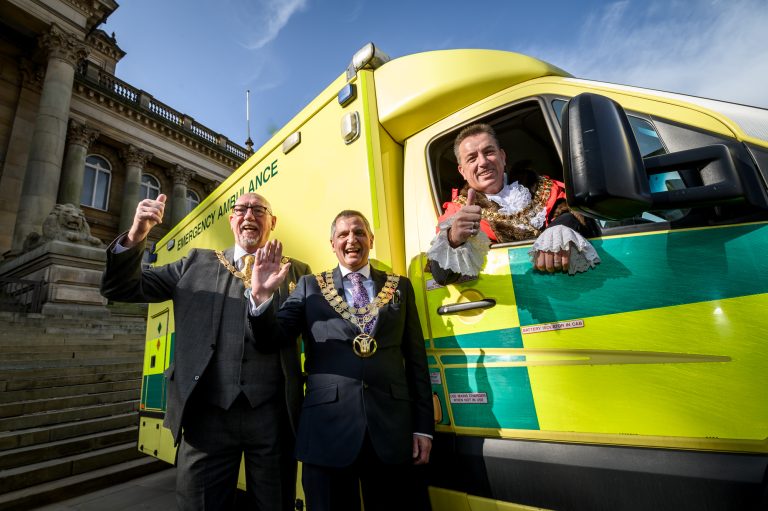
Mayors and veterans unite to drive ambulances of hope to Ukraine
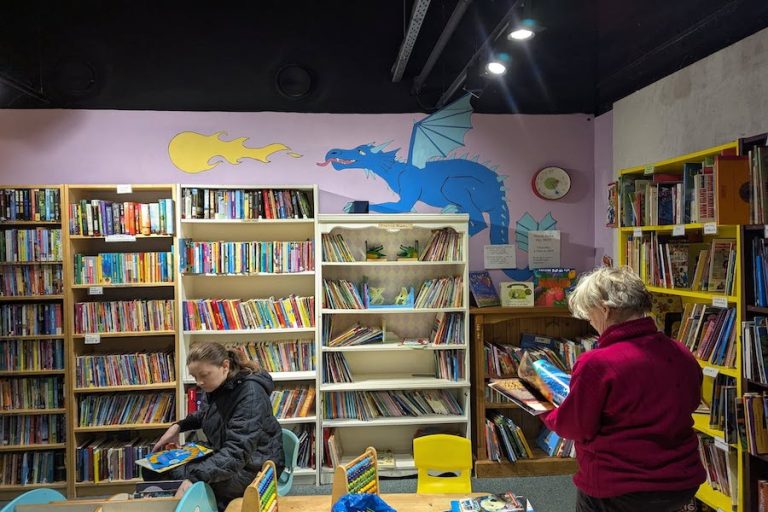
The bookshop where everything is free and everyone gets a warm welcome
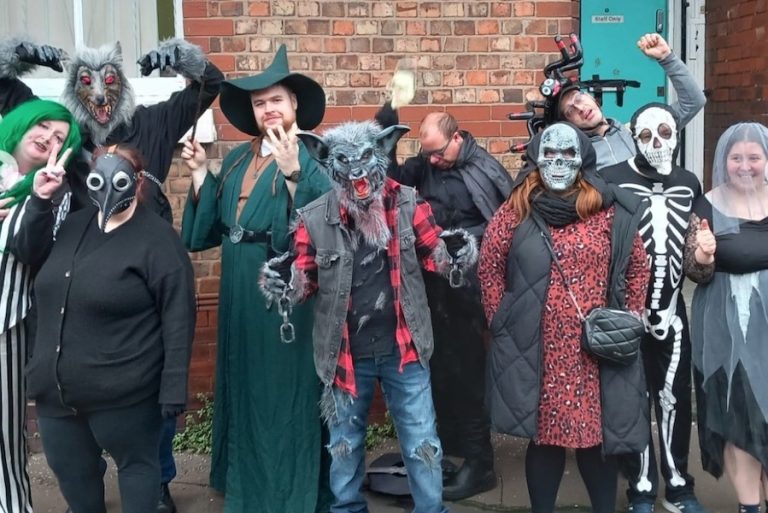
How I AM has been changing lives for neurodivergent people for over 50 years

Review: RNCM Session Orchestra with Tim Burgess and Helen O’Hara is ‘a joyful evening of classics’
